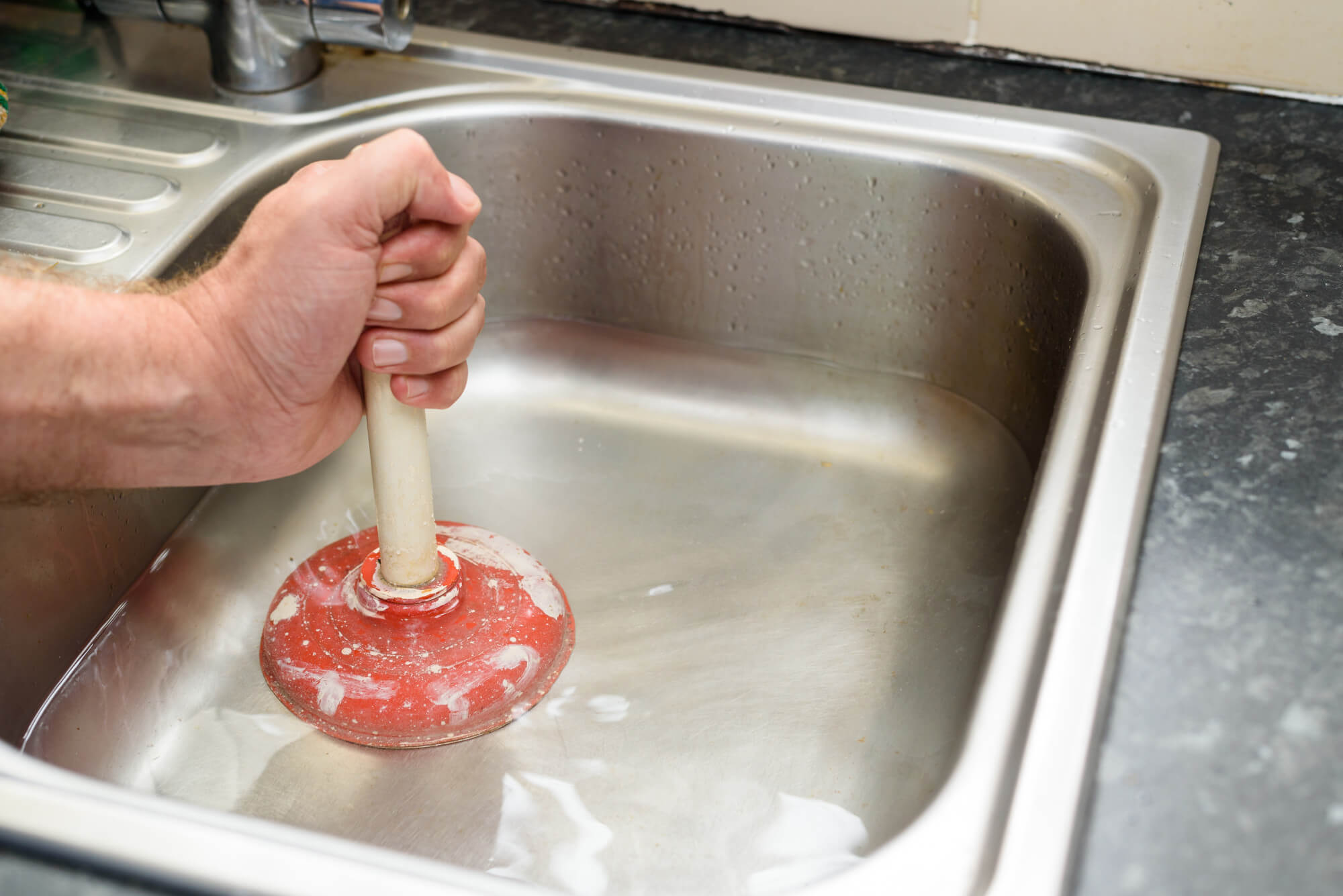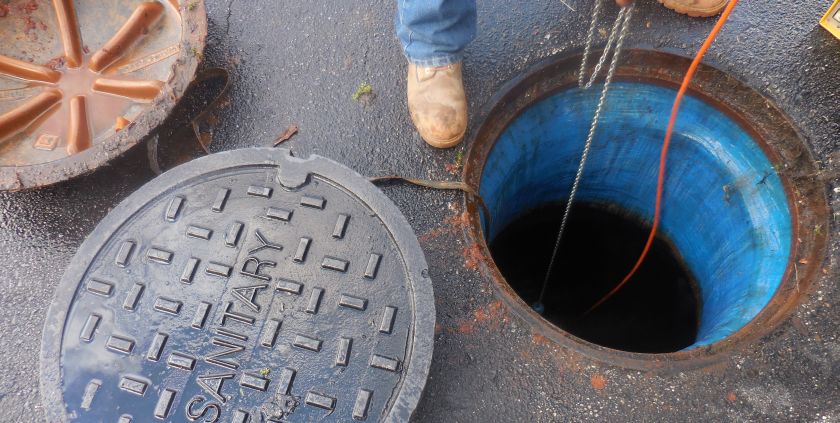Tips for Dealing with a Blocked Drain Prior to Contacting Professional Plumbers
Tips for Dealing with a Blocked Drain Prior to Contacting Professional Plumbers
Blog Article
This great article down below about How to handle a clogged drain in your home is indeed intriguing. Don't overlook it.

Intro
Managing a blocked drainpipe can be a discouraging experience, disrupting day-to-day activities and potentially creating damage to your building. Nonetheless, before reaching out to plumbing professionals, there are actions you can require to attend to the concern yourself. In this guide, we'll discover DIY options and preventive measures to take on an obstructed drain properly.
Recognizing the Problem
The initial step in attending to a blocked drainpipe is acknowledging the signs. Slow water drainage, gurgling noises, foul odors emanating from drains pipes, or water support up are common indications of a blocked drain. Recognizing these indications early can aid stop further issues.
Usual Sources Of Obstructed Drainpipes
Understanding the elements that add to drain pipes blockages is important for reliable resolution. Typical wrongdoers consist of hair, soap residue, grease, food debris, and foreign objects like sanitary items or paper towels. Tree roots getting into underground pipelines can also create considerable obstructions.
DIY Solutions
For small obstructions, several do it yourself options can be effective. Putting boiling water down the drain can aid dissolve oil and particles. Baking soda and vinegar or a combination of salt and baking soda can function as all-natural cleansers. Making use of a plunger or pipes serpent to displace obstructions is another alternative.
Devices and Equipment
Having the right tools accessible can make DIY drain cleaning more effective. A bettor is a versatile device for clearing blockages in sinks, bathrooms, and showers. A pipes snake or auger can reach deeper clogs, while drainpipe cleansing chemicals can be made use of very carefully for persistent blockages.
Preventive Measures
To stay clear of future clogs, adopting safety nets is crucial. Set up drainpipe guards or strainers to capture hair and debris prior to they enter the pipes. Frequently flush drains with hot water to dissolve grease buildup, and avoid disposing of grease or strong waste down the drain.
When to Call an Expert
While do it yourself solutions can settle minor blockages, certain indications suggest the requirement for specialist aid. Relentless clogs, foul odors regardless of cleansing efforts, or several drains supporting at the same time are red flags that necessitate skilled intervention.
Picking the Right Plumbing Service
When picking a plumbing solution, take into consideration aspects such as experience, licensing, and customer reviews. Select a reliable plumbing technician with a track record of top quality workmanship and transparent prices techniques.
Price Factors to consider
The expense of expert drain cleaning services can vary depending upon the extent of the clog and the plumber's rates. Demand quotes from several service providers and inquire about any type of added fees to make sure openness and avoid surprises.
Security Precautions
When trying do it yourself drain cleansing, prioritize safety and security. Use safety gloves and eyewear to stay clear of contact with hazardous chemicals or microorganisms. Never ever mix different drain cleaning items, as this can produce harmful fumes.
Situation Researches
Real-life instances illustrate the efficiency of do it yourself options and the importance of timely professional treatment in settling drain clogs.
Verdict
By following the suggestions described in this guide, you can successfully tackle blocked drains and prevent future plumbing problems. Whether selecting DIY solutions or looking for expert support, prompt action is key to keeping a healthy pipes system and maintaining the integrity of your home.
How to Clear a Clogged Drain Yourself (And When to Call In the Professionals)
What Can Clog a Drain
Dirt Skin flakes Hair Grease Soap scum Food Offset pipes Tree roots Small objects Mineral buildup DIY Tricks to Unclog a Drain
You can fix this! Once you have identified the source of the clog (or have a vague idea), you can try one or a combination of these fixes in order to clear your plumbing.
Wire Hanger or Snake
Untangle and clear out hair from a drainpipe with a homemade snake. Use a straightened-out wire hanger with a 90-degree angle hook to locate the clog and drag out any unwanted material.
Remember not to push the clog further down to where the wire hanger cannot reach! If you need to follow up with a plunger, give it a try. Your efforts might be more successful after it’s been wire-snaked.
If you want to get fancy and don’t have a wire hanger to spare, head to the store and pick up a hand-operated drain snake. You can get one for $10-$30. It may save you the hassle, and provide additional length to reach deep into the clogged pipe.
Plunger
A cup plunger has a suction cup attached to a wooden handle. The rubber creates a seal around the drain, and increases the pressure force of the plunger.
Plunge for 30-second increments to loosen the clog. This may need to be repeated over the course of 15-20 minutes. Once plunged, run the water to flush the remaining material out of the drain.
Remember– never use a plunger if you have used a chemical drain cleaner. These chemicals can splash up from the force of the plunger and cause serious injury or burns.
Boiling Water
Hot water can sometimes break up materials into a flushable amount. Dirt, grease, and soap buildup requires heat in order to unstick from surfaces.
Take your kitchen kettle and heat your water to a boil. Once it reaches a rolling boil, pour it directly down the drain into the blockage. Carefully follow with plunging, if necessary.
Don’t worry if this takes more than one try! It can often take multiple kettles and repeated plunging in order to clear a particularly stubborn clog.
Chemical Drain Cleaner
As a last resort, pick up a bottle of chemical drain cleaner. Drain-cleaning chemicals are potent, and not very good for the environment.
You may need to wear protective eyewear in gloves before handling your bottle of chemical drain cleaner. Follow the instructions printed on the bottle, and flush with water as soon as the instructions allow. Do not follow with plunging.
Baking Soda and Vinegar
As a safer alternative to chemical drain cleaner, baking soda and vinegar can create a chemical reaction that clears tough clogs.
Combine one cup of cleaning vinegar with one cup of boiling water, and set aside. Once you have done this, pour half a cup of baking soda down the drain. Give the baking thirty seconds to settle and cover a large portion of the problem drain.
Following the baking soda, pour down your vinegar and hot water solution. Once the vinegar and baking soda combine, the mixture will bubble and fix. Let this reaction fizzle in the drain for about an hour.
After an hour, follow with a kettle’s worth of hot water. The heat and liquid should flush out any remaining material.
When to Call a Plumber
If your DIY attempts haven’t cleared your clog drain, it’s time to call in a professional. It’s not worth losing access to your kitchen sink or high-traffic bathroom. A clog in a vital area can keep you from the things you’d rather be doing, and derail your routine.
Anytime a clog is causing water to spread is a time to call in a plumbing service. What starts out as a little bit of water can quickly grow into serious, expensive water damage.
Additionally, a serious clog can result in burst pipes or serious leaks. Make sure you know when to take it seriously!
https://myguysnow.com/how-to-clear-a-clogged-drain-yourself-and-when-to-call-in-the-professionals/

Do you like more info about ? Leave feedback further down. We will be glad to hear your thinking about this write-up. We are looking forward that you come back again in the future. For those who appreciated our page plz remember to pass it around. We love your readership.
Visit The Following Page Report this page